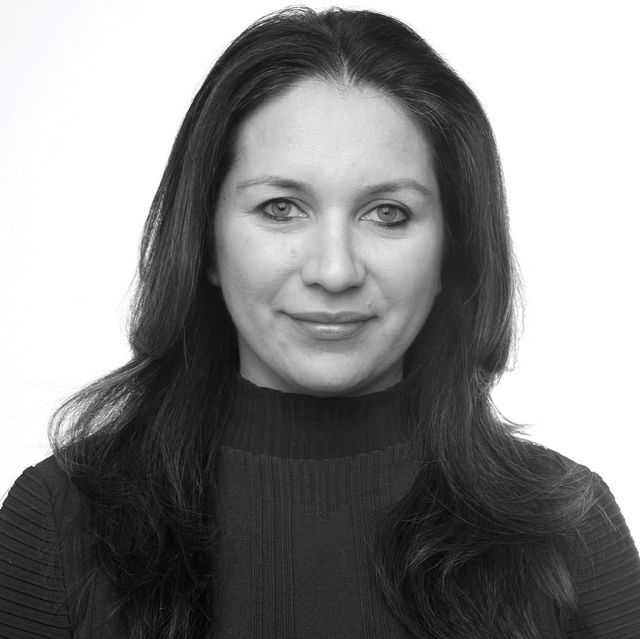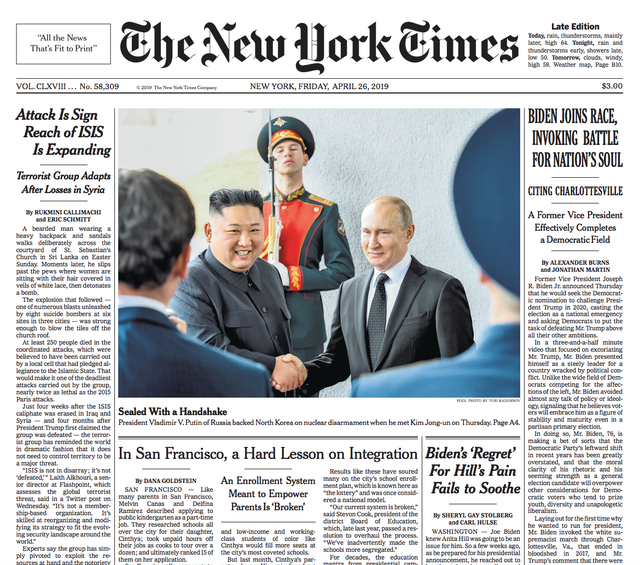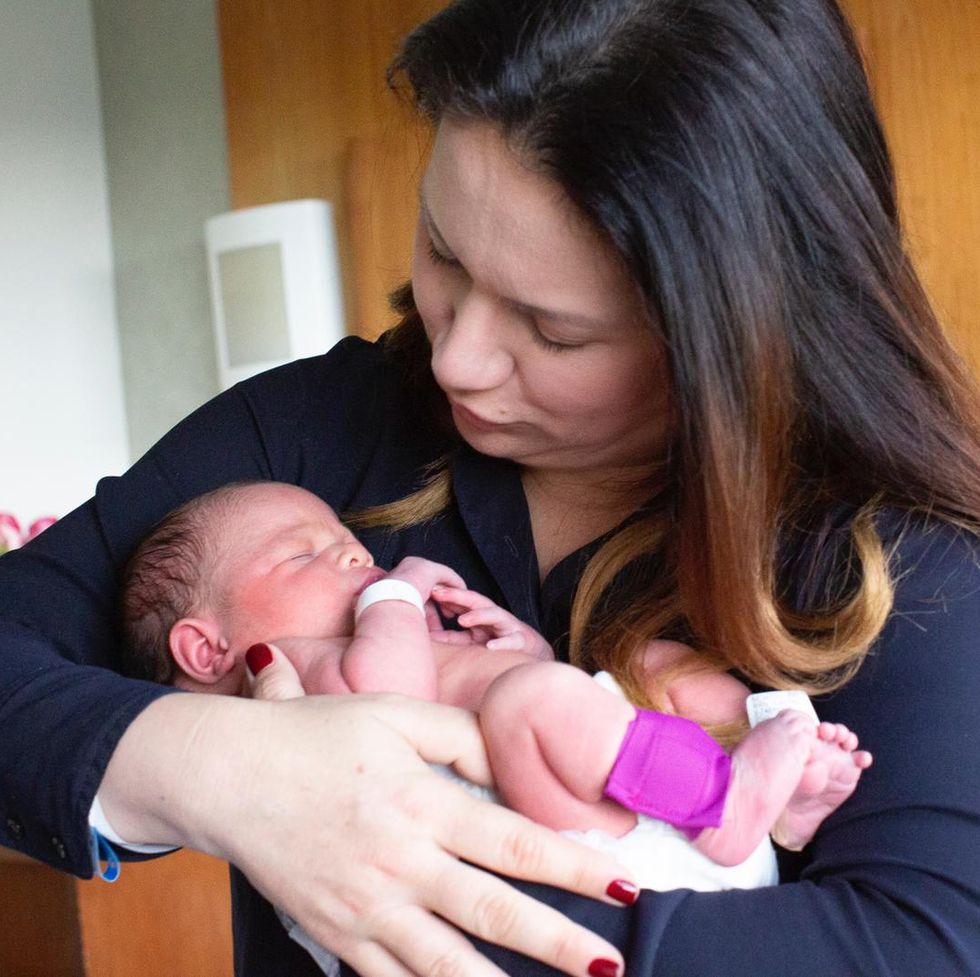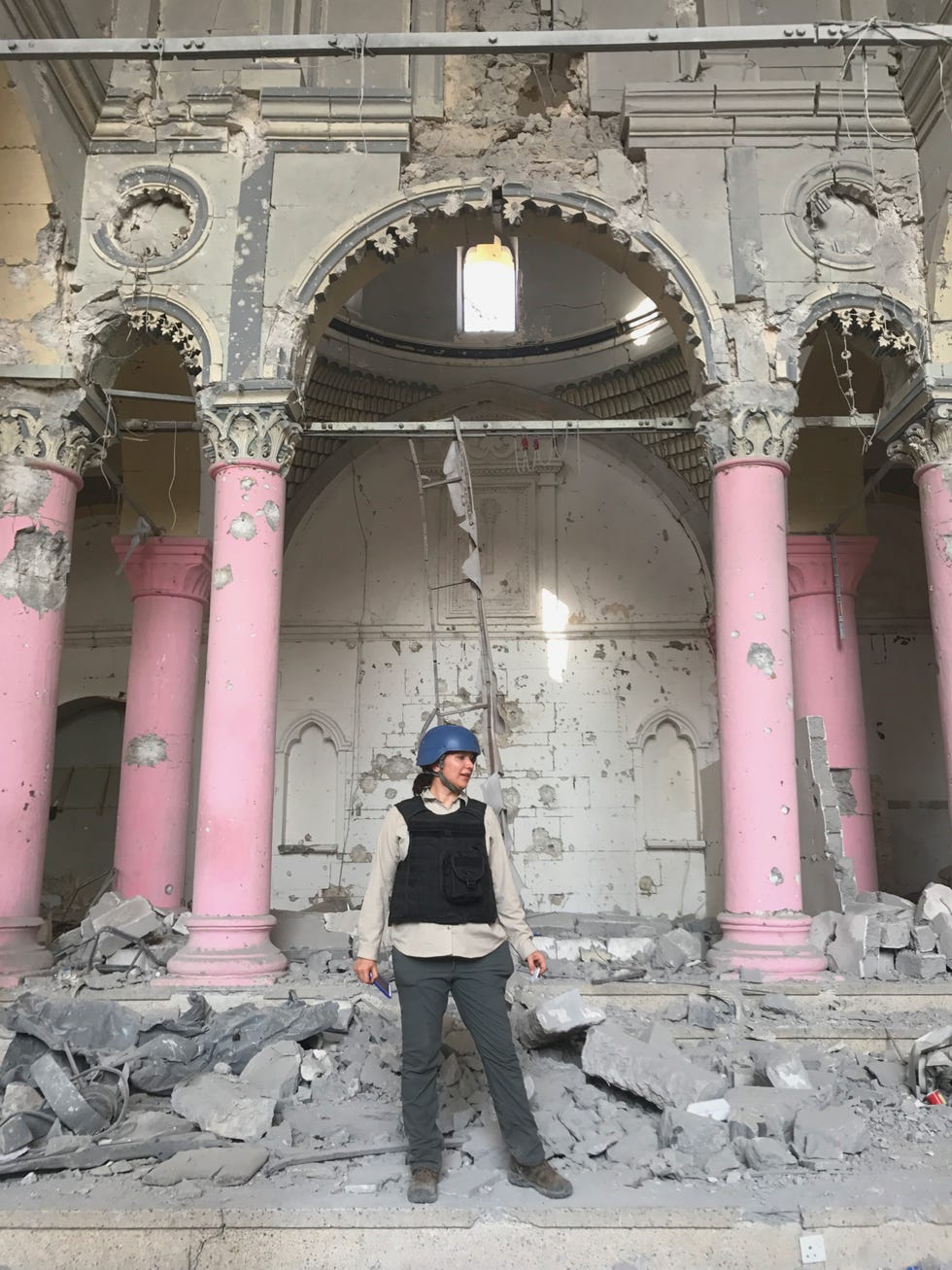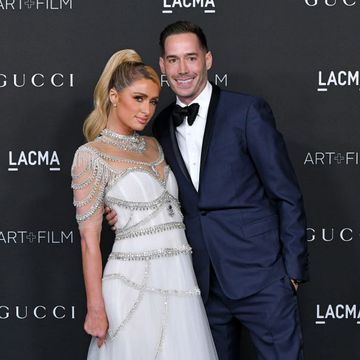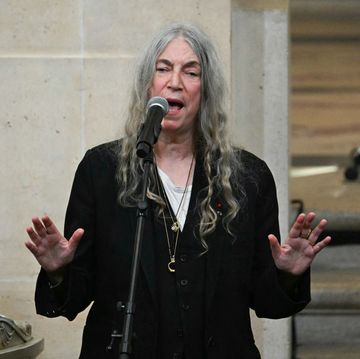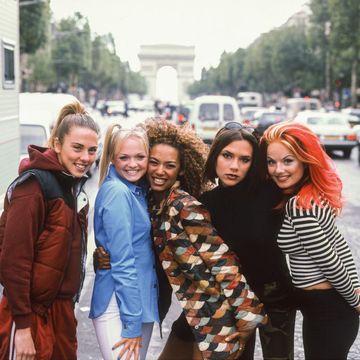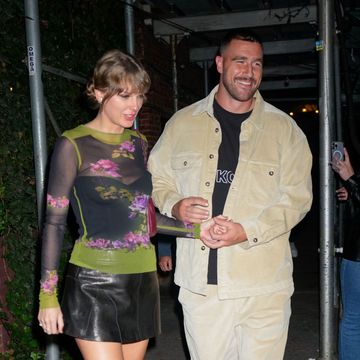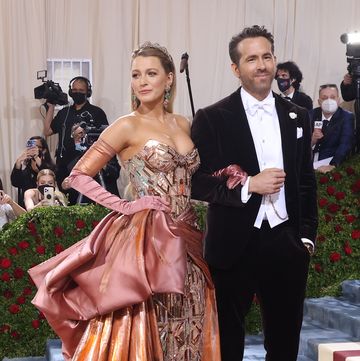Few professions are still as macho-coded as foreign correspondence: We often imagine male journalists who report from far-off war zones seeking risk at the expense of domestic ties. But nobody is doing more to update that stale archetype than Rukmini Callimachi of The New York Times. The four-time Pulitzer Prize finalist is one of the industry's foremost experts on Al Qaeda and ISIS. She's also a new mom who, in between DM-ing with terrorists and penning front page features, tweets candidly about the challenges of working while pregnant.
"The day my water broke, I was tussling with my editor about a headline," she said over the phone last week. The article was a page one story with Eric Schmitt about the deadly Sri Lanka church bombings on April 21. The attacks are believed to have been carried out by ISIS, the article showed, despite assurances from President Trump that the terror group had been defeated. They settled on "Attack Is Sign Reach of ISIS Is Expanding," and in the midst of a celebratory nap, Callimachi was awoken by a "large, wet whoosh" that sent her into labor a week early. Twenty hours later, the piece already in print, she and her husband welcomed their first child, a baby boy. She announced the news in a tweet thanking her New York City doula.
Callimachi appears in FX's The Weekly, a documentary-style series featuring Times reporters in the field. The episode, available on Hulu, follows her trip to Tajikistan to meet with a foreign fighter for ISIS named Hussein Abdusamadov, who was sentenced to life in prison for ordering the murder of American bicyclists Jay Austin and Lauren Geoghegan last year. When the interview was filmed, Callimachi was five months pregnant.
Callimachi talked to ELLE.com about landing the rare interview, managing fear while reporting, and staying sane on social media.
How difficult was it to arrange the reporting trip to Tajikistan—and how did did you manage to set up the interview with Hussein Abdusamadov?
Our trip to Tajikistan was the first time in over a decade that The New York Times had been able to go to Tajikistan. Most reporters who get a permit are followed by a minder, or government official, but we were given autonomy and then we got an email from the foreign ministry saying, "If you want to come back to interview Hussein, you can do so now."
Hussein was a foreign fighter for ISIS, but he wasn't just any foreign fighter. He had joined what is known as the external operations arm of ISIS. That's the same wing of ISIS that carried out the Paris attack, the Brussels attack, and others around the world. And, he was dispatched back to his home country with this explicit aim of finding foreigners, specifically Westerners, to kill—which he obviously did.
When we talked, he stood by what he had done. He had absolutely no remorse. And he said to me that, if he had a chance to do it, he would do it again. I also asked him, "If you were to run into me on the street, would you kill me?" And he basically said yes.
You've said that that "fear" guides you as you report in the field. Were you fearful in that moment?
I was actually four months pregnant when I did that interview, almost five months. And, this wasn't filmed, but I had to get up in the middle of the interview to go to the bathroom. When I went outside, the person from the ministry of foreign affairs who had set up the interview for us, and who was there, followed me outside. He said to me, "My God, you're so courageous." And I said, "How am I courageous? He's shackled, we're in the prison, there's guards around, there's nothing that he can do." And he said, "Well, clearly, you don't understand. This is a man who has nothing left to live for. He has just been sentenced to life in prison. He has said to you repeatedly that he's not remorseful. He has told you that he's willing to kill you if he had the chance, and you don't understand how dangerous he is."
In that moment I sort of paused and thought to myself, "Am I being foolish?" I thought, "Surely, this man, who was already in jail, is not going to do something else to make his life even more difficult, mainly attacking a reporter. And how would he attack me? The only thing he could use is his hands." But it did give me pause, and I thought to myself, "Maybe I'm underestimating what he's capable of."
You posted a Twitter thread about working as a foreign correspondent while pregnant, detailing how U.S. doctors discouraged you from working in Iraq and Syria.
Doctors here were just assuming the worst about the places that I was describing, like Iraq, Syria. I think they were speaking from a place of concern for me. But, what I kept asking them is, "Is there something medically wrong with my pregnancy? If this pregnancy is a high risk pregnancy, if I have preeclampsia, if I have high blood pressure, if there's something wrong that would mean that I'm at risk of having a miscarriage or something of that nature, then tell me." But the answer was always, "No, you're perfectly healthy, and the pregnancy is perfectly healthy."
So at that point, it's just a question of whether you can maneuver in these countries and be safe. And the reality is that tons and tons of women in these countries that I go to are pregnant and have kids just fine. So, what makes us so precious to not be able to go there, and spend a couple of weeks in these countries and do our work and come home?
What do you say to people who think writing about ISIS only makes it more powerful?
That is misplaced. This is a group that's dangerous, that it is trying to do harm. And I think our role, as journalists, is to accurately report on them. I feel that we're actually not doing enough reporting on them. We've given readers the impression that this group is gone, and it's very far from that, as Jay and Lauren's story shows.
What other journalists are doing an exceptional job covering extremist groups—anyone you personally admire?
I really like the work of Jenan Moussa, she's a Lebanese journalist, so her work is mostly in Arabic. But if you follow her tweets, and her Twitter storms, she does very similar work to me. She looks for documents, and she uses those as a jumping off point to do deeper investigations. And then, I would say in the U.S., I really like the work of Graeme Wood, who did the big Atlantic piece, "What ISIS Really Wants."
A recent Amnesty International study found that female journalists and politicians were the subject of abusive tweets every 30 seconds. Have you ever considered taking a step back from social media?
I see both the good and the bad of social media. The good is amazing in the sense that, so many people have been touched by what I've written, and have written to tell me so, which is incredibly gratifying and touching to me. And then, there are people who just want to be jackasses. You're rude to me, you're abusive, you can't control the way that you speak to another person on Twitter, I block you. It's done. I mean, I don't have time for it.
I don't want to generalize, but a lot of them are men, and they're the Islamophobic crowd that want me to say something negative about Muslims. That's what they're upset about. And then on the flip side, there are people who are members of the faith, who feel attacked just by the virtue of the fact that I've written about ISIS. So it comes from both sides.
Then, there's also the aspect of Twitter as a reporting source. And, it's really been unparalleled for me. I mean, I speak to extremists on Twitter, I speak to terrorists on Twitter via DM and then, very quickly, we move to an encrypted platform, because, of course, Twitter is not safe.
You're on maternity leave for a few months. Have you already started thinking about future stories?
I know all the clichés that people talk about, but the second I heard my son cry, I just started weeping. I mean, it just hits you so far down in your soul, to think that this is my child, this is somebody that is going to be linked to me—probably be the closest person to me—for the rest of my life. And, anyway, and at the same time, it's all consuming. I've been basically feeding him, and changing his diaper—so, so many diaper changes—for the past six weeks. Of course, my aim is to keep doing this work at the highest volume possible, and I need to figure out how to work towards that.
Watch Callimachi on The Weekly, now available on Hulu.
